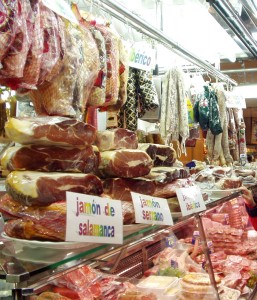#9 — Create Fresh Images
Clichés happen. It’s our brain’s way of being efficient. Ask for a nice day and your brain will serve up sunshine, blue sky, maybe some trees, a few flowers. Ask for a policeman, a parade, a politician? (OK, maybe in this season of madness, don’t ask for a politician.) Whatever you ask for, your brain is quick to fill in the blanks with the old, the tired, the familiar, the usual.
Part of the work of writing, and a whole lot of the fun, is in finding and conveying fresh images. Imagine looking at the world through a new pair of glasses, maybe some that are a little out of focus. Or in 3-D. Imagine being a little kid again and seeing a giraffe for the first time. Imagine learning the meaning of a new word and using it in a new way, or making up a new word that conveys exactly the image you’ve created. “Certain images create private little excitements in the mind,” said E.L. Doctorow.
“Squint,” Naomi Epel advised us in her kit, The Observation Deck. “Look at the world through a mirror.” “Roll up a piece of paper and create a pirate’s looking glass.”
Gaze out windows for long periods of time, stare into treetops, slow down! Follow a little kid around and ask her questions about what she sees, how things work, or just listen to her. Kids make metaphor like I eat M&Ms (unconsciously, by the mouthful). In her book, PoemCrazy, Susan Wooldridge quotes her son, Daniel, with a series of his, “It yooks yike” metaphors. And I love what Robin Simmons is doing on her blog, Bountiful Healing, with visual images sometimes evoked by prompts from A Writer’s Book of Days. On his blog, Chuckography, photographer Chuck Boyd (the father of my children), continues to surprise me with his fresh photographic images.
Image/imagination. Keep those words together in your mind so that when you open the “fresh image” file, your imagination comes automatically and permanently attached.
What’s the freshest image you observed today? The freshest image you created?



